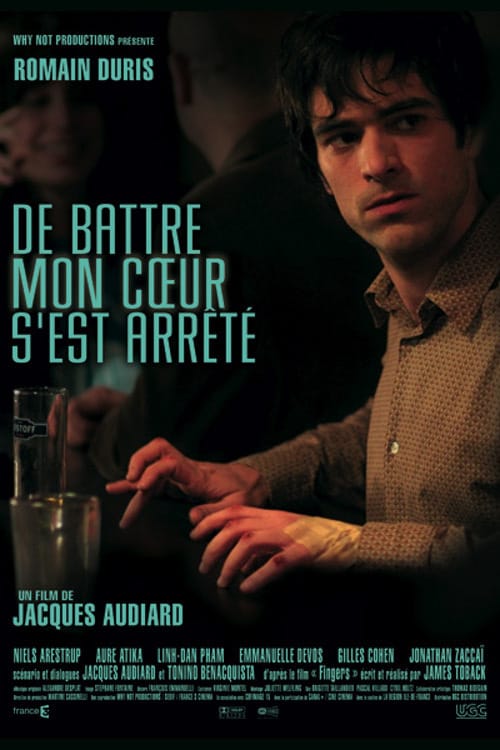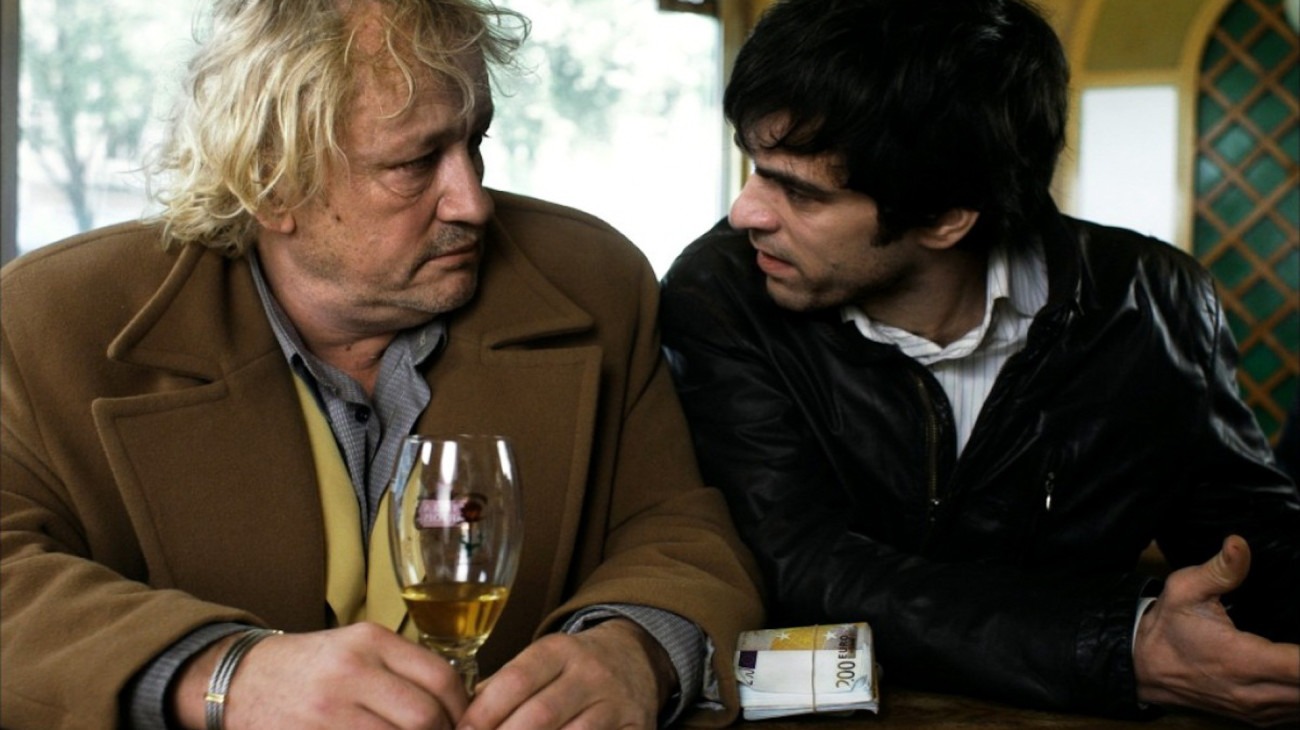
Heart of crime
Author's note, January 2017: as I'm sure you can see for yourself, this is an incredibly bad movie review written by a very immature and unsystematic critic. My every instinct is to bury it down in the dark where nobody will ever find it, but as the very first movie review written for Antagony & Ecstasy and thus the oldest in the Alternate Ending archives, it seemed very necessary to keep it in its rightful place.
The Beat that My Heart Skipped is a French crime drama about Tom (Romain Duris), a young man who commits acts of extortion and vandalism to acquire property for cheap in the heady world of Parisian real estate. He learned the skill for this job from his thug father Robert (Niels Arestrup); from his mother, a concert pianist, he learned a love of music, and when he meets her manager, he develops a desire to follow in her footsteps, but finds the life of violence/etc. to be difficult to shed.
The plot, as I expect that inelegant little block of prose demonstrates, is entirely beside the point. It's a hackneyed little number of "bad boy wants to go straight" that we've all seen a hundred times, and will never be done better than in The Godfather, Part II. What makes The Beat That My Heart Skipped interesting is the way that family enters the dynamic (again, The Godfather, but very different). The very first scene in the film shows a friend of Tom's complaining about the end of his own father's life, when he had to care for his father like a small infant (the parallel is suggested rather than stated outright, in a very lovely bit of dialogue). And thereafter, every time that Tom returns to his criminal roots, it is to help his father out of difficulty.
The film is a remake of Fingers, directed by James Toback in 1977, and the film owes an obvious debt to the American crime dramas of that decade. However, the human element is played more in terms of relationships between persons than in terms of individual morality, and here I was reminded less of Coppola and Scorsese and their brood, and more, surprisingly, of Cassavetes. Certainly, the film would fall apart without the violence-art framework that Tom's crisis occurs in; but little is done with the actual fact of crime or piano-playing (whereas The Godfather is, in effect, about violence, violence is merely a storytelling element here).
It's a smart character piece, and certainly better than most of what's in the cineplex right now, but it felt like a variation on themes I've seen done better many times. And, tragedy of tragedies for a genre picture, it was stylistically inert (well-directed, well-shot, well-edited, but no more than was necessary). If you have to see a movie right now, you could hardly do better, but that's a commentary on the wasteland of late summer American filmmaking more than anything else.
The Beat that My Heart Skipped is a French crime drama about Tom (Romain Duris), a young man who commits acts of extortion and vandalism to acquire property for cheap in the heady world of Parisian real estate. He learned the skill for this job from his thug father Robert (Niels Arestrup); from his mother, a concert pianist, he learned a love of music, and when he meets her manager, he develops a desire to follow in her footsteps, but finds the life of violence/etc. to be difficult to shed.
The plot, as I expect that inelegant little block of prose demonstrates, is entirely beside the point. It's a hackneyed little number of "bad boy wants to go straight" that we've all seen a hundred times, and will never be done better than in The Godfather, Part II. What makes The Beat That My Heart Skipped interesting is the way that family enters the dynamic (again, The Godfather, but very different). The very first scene in the film shows a friend of Tom's complaining about the end of his own father's life, when he had to care for his father like a small infant (the parallel is suggested rather than stated outright, in a very lovely bit of dialogue). And thereafter, every time that Tom returns to his criminal roots, it is to help his father out of difficulty.
The film is a remake of Fingers, directed by James Toback in 1977, and the film owes an obvious debt to the American crime dramas of that decade. However, the human element is played more in terms of relationships between persons than in terms of individual morality, and here I was reminded less of Coppola and Scorsese and their brood, and more, surprisingly, of Cassavetes. Certainly, the film would fall apart without the violence-art framework that Tom's crisis occurs in; but little is done with the actual fact of crime or piano-playing (whereas The Godfather is, in effect, about violence, violence is merely a storytelling element here).
It's a smart character piece, and certainly better than most of what's in the cineplex right now, but it felt like a variation on themes I've seen done better many times. And, tragedy of tragedies for a genre picture, it was stylistically inert (well-directed, well-shot, well-edited, but no more than was necessary). If you have to see a movie right now, you could hardly do better, but that's a commentary on the wasteland of late summer American filmmaking more than anything else.
Categories: crime pictures, french cinema, thrillers






